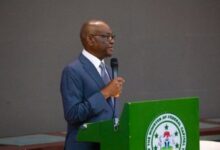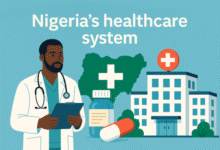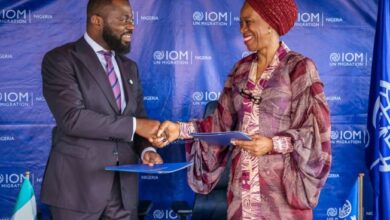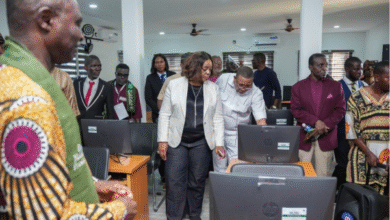African Scientists brainstorm to boost on ASRIC strategic plan
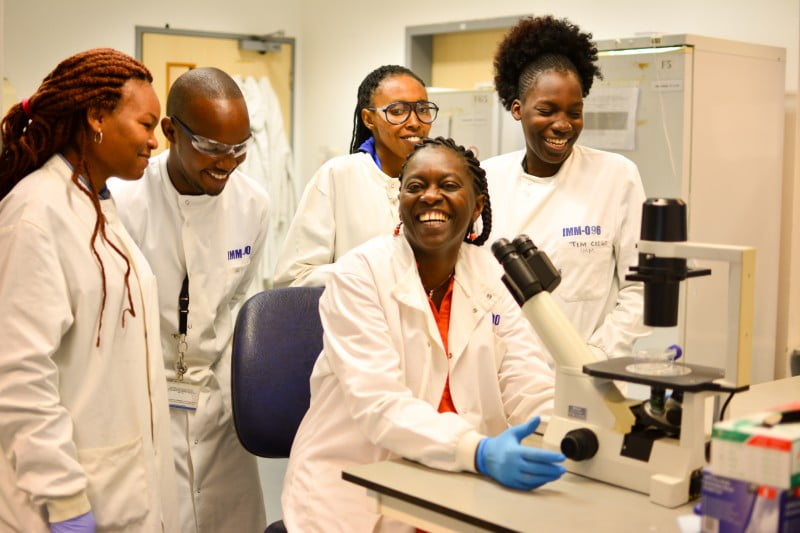
By Tolu Dada
In order to further implement its strategic plan of advancing Science, Technology and Innovation (STI) on the African continent, African Scientific, Research and Innovation Council (ASRIC) brought together scientific minds from across the Africa and diaspora.
About 200 scientists recently gathered on 8th and 9th March,2023 in a hybrid meeting of the 5th ASRIC Congress which held in Mombasa, Kenya, while several others participated virtually.
ASRIC brought together scientific minds from across the five African geopolitical regions (55 member countries), and the sixth region (Diaspora), to share and exchange ideas addressing real issues,on the continent.
Present at the meeting were Heads of the National Science Academies, National Research Institutes, and academics.
The theme for the congress was: “STI to strengthen food nutrition, health and social protection systems to accelerate Africa’s socio-economic, human, social and economic capital development”.
ASRIC is a special advisory body to the African Union mandated to implement the Science, Technology and Innovation Strategies in Africa. It is instrumental in the implementation of various AU development policies.
ASRIC has a broad mandate as outlined in its statute to promote research and innovation to address Africa’s socio-economic development challenges.
In 2022, ASRIC strategic plan 2022- 2028 was developed as a plan that recognizes STI as one of the major drivers and enablers for achieving development goals of the AU and its Member States. .
The plan provides STI products and services that contribute to Africa’s economic transformation and prosperity.
The products and services focus on enhancing intra-African research, human capacity development, STI potential for Africa’s economy and livelihood via implementation of its flagship projects.
ASRIC’s senior scientific officer, Dr Kyari Mohammed gave highlights on the ASRIC Flagship Project consisting of on Hepatitis B eradication, covid-19 diagnostic and treatment, Africa disaster management research, Artificial intelligence in agriculture project.
Others included: ASRIC scholarship scheme among others, stunting and Food Security among others and progress reports were shared on them by representative from different member states.
Mohammed said that the ASRIC flagship projects were priority areas of its strategic plan and each project has impact on the country, region and inclusivity for everybody in the continent.
According to him, each flagship project has to address community needs or market demands and must bring immediate and long-term sustainable solutions to issues of urgent attention.
He stated that flagship projects are identified and voted for by ASRIC members’ countries.
Earlier while addressing participants, the Executive Director of the African Union Scientific and Technical Research Commission (AUSTRC), Dr Ahmed Hamdy, called on African Academy of Sciences and Research Councils for continued support in advancing science and technology in Africa.
He said the contributions of National Academies of Sciences and African Research Council was valuable to achieving the mandate and objectives of ASRIC.
“Without the contributions of the National Academy of Sciences and African Research Councils, the mandate and objectives of the ASRIC, as well as that of ASRIC Strategic Plan 2022 – 2028 will never be achieved,” Hamdy said.
Prof. Gad El-Qady on his part stressed the need for data in other to innovate and make Africa has strong narratives in managing disaster especially in the cultural context.
“Only when innovation meets the cultural context in Africa, can we truly make the data we collect meaningful because data and numbers on their own mean nothing,’’ he said.
El-Qady addedthat the future of Africa is the business of all Africans and not only the government. According to him, “we have to begin to generate the required knowledge and research to support African development.’’
Mr Musa Mustapha, a beneficiary of the ASRIC Phd scholarship said the scholarships were benefiting PhD students from across the African continent as they build their expertise in Al and other research areas.
Mustapha, who is researching in Artificial Intelligence in Agriculture at EuroMed Université Fés, Morocco said he has benefited immensely from the scholarship. He disclosed that he has been able to give back to his locality in financial, moral and educational support
Mustapha said:“Knowledge is a renewable resource and Africa has to learn not only to generate knowledge but also how to effectively exploit this knowledge.’’
The two-day session consisted of dialogues from National Academies, the ASRIC scientific journals management sessions and updates from ASRIC diaspora chairs.
The Bureau endorsed the priority areas identified in earlier presentations and closed the meeting with a Mandate to create more African institutes and foster collaborations with members of the diaspora.
They also called for increased ASRIC members’ participation and contributions in decision making which will help shape the agenda.
News Agency of Nigeria


